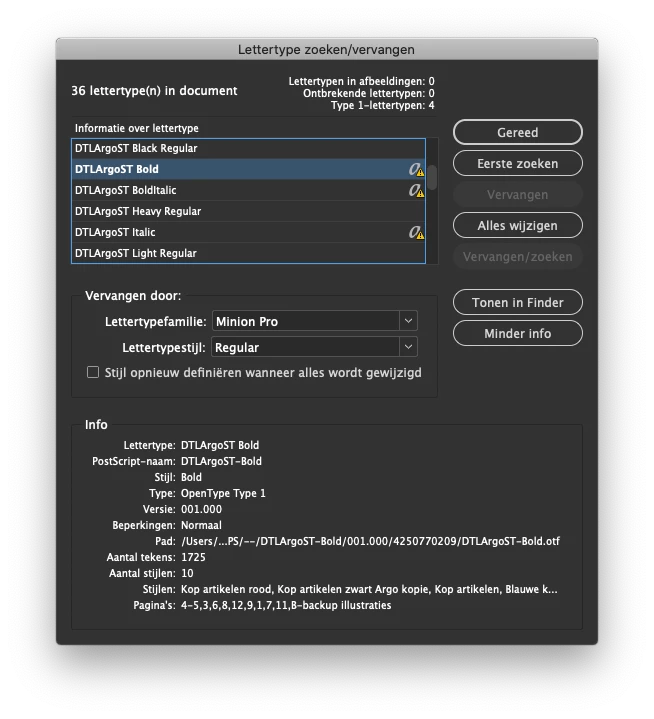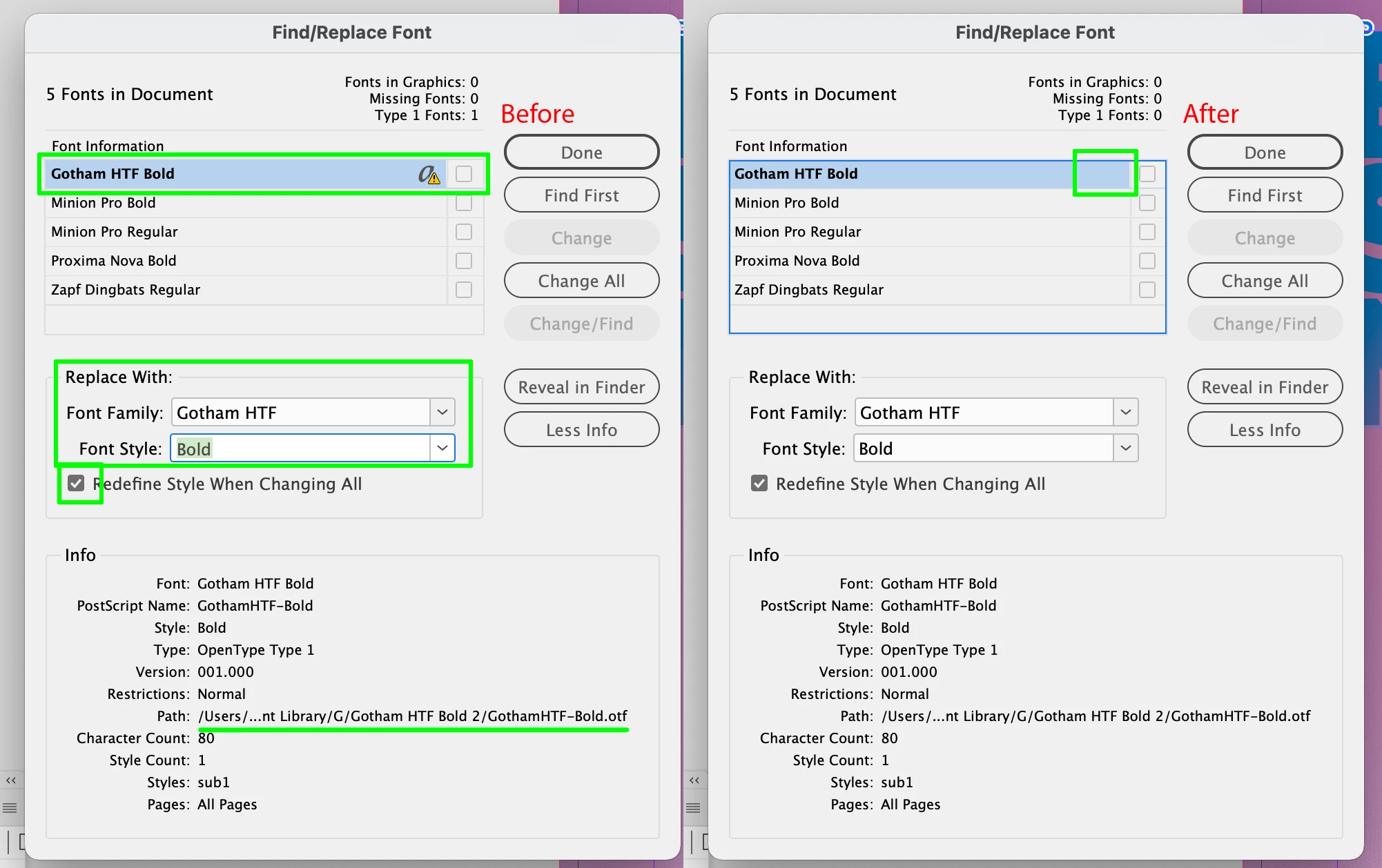OpenType font marked as PostScript Type 1 font
Hi there!
Adobe has announced that from 01-01-2023 all PostScript Type 1 fonts will be obsolete and not be supported anymore.
Last month I’ve rebuild an InDesign document (macOS, Catalina) and changed all PostScript Type 1 fonts to OpenType fonts in order to have a future proof document. All document text is now formatted with the new fonts. No problem so far.
In the window Find Font I see all used fonts in the document. Some fonts still have the PostScript Type 1 warning. You can see in the screenshot that the selected font has this warning, but in the Info section you see that this font is an Open Type font with an otf file extension.
Is this an InDesign bug?



